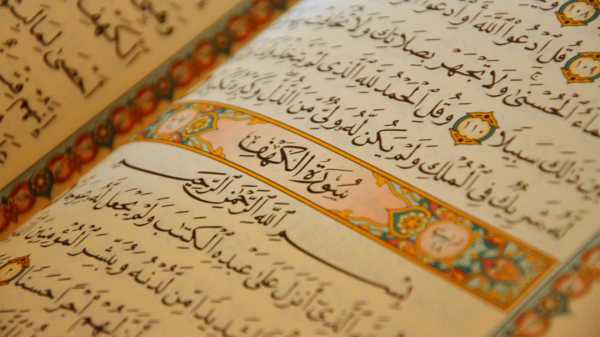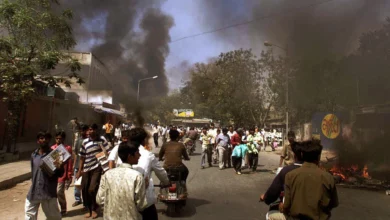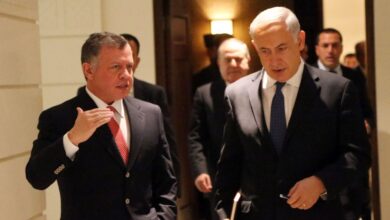After a church was partially burned and demolished last Friday in the village of Sol in Atfeeh, Helwan, thousands of residents attended a conference on Wednesday to strengthen solidarity between the village’s Muslim and Christian communities.
Last Friday, the discovery of a relationship between a Christian man and a Muslim woman ignited fights between the two families that led to the death of two Muslims. Angry youth then headed towards Shahedain (Two Martyrs) Church and partially demolished it in revenge.
The incident triggered large Coptic demonstrations in Cairo throughout the week that led to clashes on Tuesday resulting in at least ten deaths and over 100 injuries. Some observers fear that Egypt’s infamous State Security may have instigated the recent wave of sectarian strife in order to distract protesters who are demanding that State Security be dismantled.
During the conference, Muslim and Christian attendees chanted, “Muslim and Christian, we are united as one,” and Christian residents denied having been attacked and forced to leave the village after the church incident. Saad Suleiman, a Christian resident of the village, claimed that the Sol’s Copts remain at home and operating their businesses as usual. The only Christians who fled the village, he said, were a few fearful women and children who left after witnessing the church incident.
Suleiman says that the only Copts who were forced to leave are the ones who caused the crisis, and that the decision to oust them was made by the Coptic leaders of the village. Other Copts in the village had claimed earlier that they had been attacked by thugs in an organized assault led by ex-convicts. It remains unclear how certain Christian residents may have been perceived to have caused the crises.
“You can’t separate the Muslims from the Christians here, just as you can’t separate the blood from the water running in your veins,” says Suleiman.
Muslims attending the conference said they had tried to protect the homes of their Christian neighbors after the church attack.
In a further attempt to de-escalate the situation, Muslim clerics Mohamed Hassan and Safwat Hegazy addressed the crowd. They stressed that Islam calls for equality between people of all religions and warned that sectarian tension endangers the success of the revolution.
“Egypt has enemies in the inside and the outside who are planning against it, and the only way that they can succeed is by creating sectarian tension,” said Hassan.
Conspiracy theories about outside incitement of sectarian clashes abound. Hegazy alleges that one of the leaked State Security documents included a correspondence from US intelligence to the Ministry of Interior four days before Mubarak’s resignation that foreshadowed the success of the revolution and asked the ministry to utilize sectarian clashes to keep the revolutionaries from changing the world order.
“Egypt will always remain a safe land for all Egyptians, Muslims and Christians alike,” Hegazy said, urging the crowd not to waste the blood of the martyrs by turning against each other.
The conference was also attended by Muslim Brotherhood member Mohamed al-Beltagy, activist George Ishaq, political researcher Amr Hamzawy and representatives from the Youth of the Revolution Coalition.
Even though most of the attendees at the conference seemed to demonstrate solidarity with their neighbors, a small group of young Muslims refused the speakers’ calls to rebuild the church.
Some of the village’s residents continue to surround the site of the demolished church and insist that they found evidence the church was used to prepare spells against the village’s Muslims to cause divorces and other misfortunes. They said they found lists with the names of all the Muslim residents in the church.
“We would rather die here than let the church get rebuilt,” declared one of the young men at the site.
Mahmoud Abdel Alim Gheith, Sol’s mayor, maintains that the village’s Christians remain safe in their houses and that the media is to blame for blowing the crisis out of proportion.
Gheith says that village relations between the two religious groups are governed by a law stating that residents of all faiths should be treated equally.




